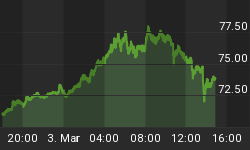"...When house prices fall, foreclosure rates rise. But that only tempts mortgage lenders into making the crash worse..."
"HOUSE PRICES to recover next year," said The Times of London on 17 November, 1989.
Real estate in the United Kingdom had risen three times over on average during the previous 10 years. National prices rose 40% in the last 18 months alone!
But now, suddenly, house prices had stopped rising. When would the good times kick off again?
The Bank of England did all it could, slashing UK interest rates by one-third. Mortgage lenders put on a brave face too, easing their E-Z lending terms further still. And the gentlemen of the press were only too willing to talk up the market.
No wonder, then, that "recovery [was] forecast for house prices in market awash with loan funds," as the Times reported in Jan. 1990. But not even broad money supply growing by 18% year-on-year could stop the rot.
By July 1990, "the bottom of the current house price cycle may have passed," the paper went on. Come the fall of that year, however, The Times had to repeat itself again.
"House prices bottom out...the long slide in house prices could be nearing its end," it said. National prices continued to slide regardless.
By Sept. '91, real house prices - adjusted for inflation - stood 25% down from the peak. "House-price surge is on the way," said The Times, "but wait for it."
No fooling! The following month, Oct. 1991, The Times finally admitted that "Fall in house prices dashes market hopes."
Why so glum - and who was to blame? The mortgage lenders looked guilty. But they were now suffering record late payment rates. At least one major bank looked set to go under.
Mortgages more than 6 months in arrears accounted for 3.5% of all loans outstanding at the start of 1992. Cue The Times to report that "record repossessions are keeping down house prices" - even though the mortgage lenders themselves had long since stopped repossessing when they could possibly help it.
America's mortgage lenders may well try the same remedy in 2007.

US foreclosures rose 42% in 2006 according to RealtyTrac.com, up from 855,000 in 2005 to 1.2 million nationally. But throwing young families out on the street rarely makes for good PR. And during a genuine real-estate slump, it only adds to the downward pressure on home prices.
ForeclosureDeals.com picks up the story:
"If a homeowner can't make his or her monthly mortgage payments...he or she is usually in forced into the position of defaulting on the mortgage, and then the lender must foreclose on the home. After repossession, the lender is the new owner [and] the property is known as a repo home, property repossession, real estate owned property (REO), bank-owned property, foreclosure home, government home, distressed property, repossessed home [or] commercial seized property.
"Whatever name the properties have, they all have one thing in common - the new owners want to sell them as quickly as possible, often even if that means selling the repo homes at a price well below their full market value."
Selling an asset below market value might bring a quick sale. But it also pulls aggregate prices down further. The lesson for US mortgage lenders couldn't be clearer.

Ahead of the United Kingdom's last house-price crash, nine out of every 10 late-paying mortgages more than 12 months in arrears were taken into repossession. By the bottom of the slump, however, the mortgage lenders slashed that kill rate beneath one-in-5.
Fast forward to March 2007, and "it's true that [US] foreclosures could have a negative impact on the housing market if they continue to increase at this rate," said James Saccacio, CEO of RealtyTrac, recently. "In some of the more problematic local markets they already may be contributing to slowing home price appreciation and a glut of homes for sale.
"However, most local markets have been able to re-absorb foreclosure homes without seeing any major damage to the local economy."
For as long as that's true, the collapse of America's subprime lenders may indeed be "contained" as Ben Bernanke would have us believe. But the subprime lenders - trapped in a classic "prisoner's dilemma" - know the dangers posed by forced real estate sales.
The best outcome? Game theory says people will screw their peers every chance that they get. In the "prisoner's dilemma", two players can either help or betray each other. The optimum choice is always to turn state's evidence and get early release - assuming, of course, that the other felon plays it straight and doesn't betray you!
In today's real-estate market, just the same problem's at work. For each individual mortgage lender, the need to cover their ass will mean recovering their assets. But for the industry as a whole, it would be better off leaving late-paying home-owners right where they are. Foreclosing and selling en masse will only push real-estate prices lower, faster.
Either way, a lot of companies and households now look set to go bankrupt. Expect to find zombies wandering both Wall Street and Main Street...carrying debts they cannot repay...lent by finance companies that can't afford to call in their loans.
P.S: "Boom days gone forever as house prices still fall," said The Times of London in June '92, three years after the top. But taking that as a contrarian signal - and buying back in - would have cost you money for another four years.
















